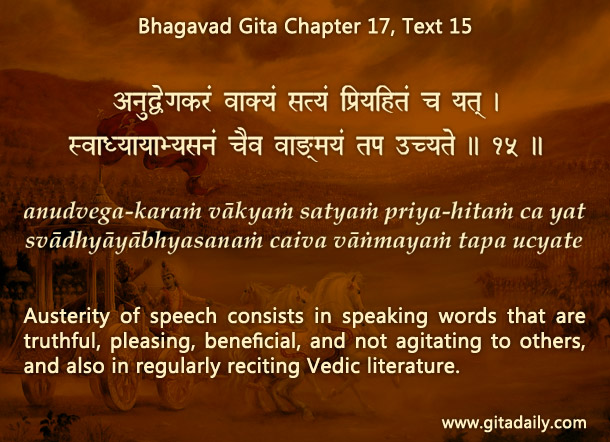Suppose a child meets with a terrible accident that permanently damages his legs. Cultured society may avoid referring to him as lame or even as physically handicapped, but may call him a ‘special needs kid’. To not use a blunt word that thrusts others into remembering a painful reality is basic human sensitivity. But suppose no one tells the child that his legs won’t work like before. Eventually, when he tries to walk, he will be aghast to find his legs collapsing under him. If he had been warned earlier, he would have been better prepared mentally — and maybe even better prepared physically, by starting some preliminary physiotherapy while in bed.
We all may sometimes become similarly over-sensitive. How? When we speak with someone in a difficult situation, but never refer to that situation, even though by speaking about it, we can help them deal with it. Pertinently, the Bhagavad-gita (17.15) states that effective speech needs to be both sensitive (non-agitating and pleasing) and sensible (truthful and beneficial).
Suppose a loved one is consuming alcohol excessively. We can sensitively refer to them not as an alcoholic, but as someone with alcohol issues. But suppose we are so sensitive that we never discuss the issue with them; we never get them to consider the consequences if the issue escalates; we never encourage or exhort them to address the issue, offering them all the help we can. Eventually, they disintegrate before our eyes and things go too far down for us to help them. We will be at least partly responsible: for having failed to do our part in assisting them when we could and should have.
One-sentence summary:
To not use harsh words to refer to others’ unpleasant situation is sensitivity; to never refer to their situation, especially when they can mitigate it and we can help them in doing so, is irresponsibility.
Think it over:
- When is sensitivity desirable?
- When does sensitivity become excessive?
- Is over-sensitivity stopping you from having a difficult discussion with a loved one? How can you gather the strength to discuss it?
***
17.15: Austerity of speech consists in speaking words that are truthful, pleasing, beneficial, and not agitating to others, and also in regularly reciting Vedic literature.


Leave A Comment